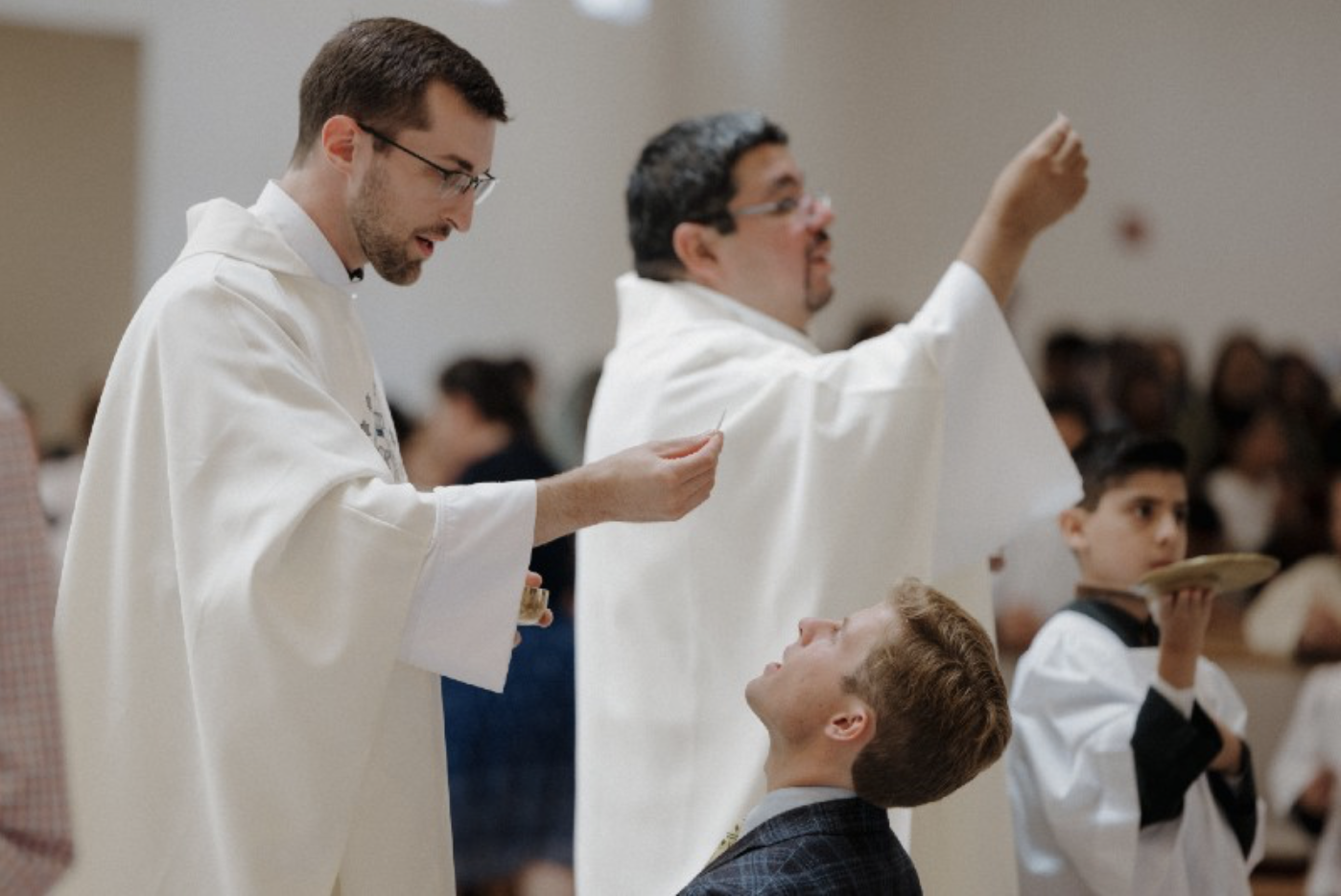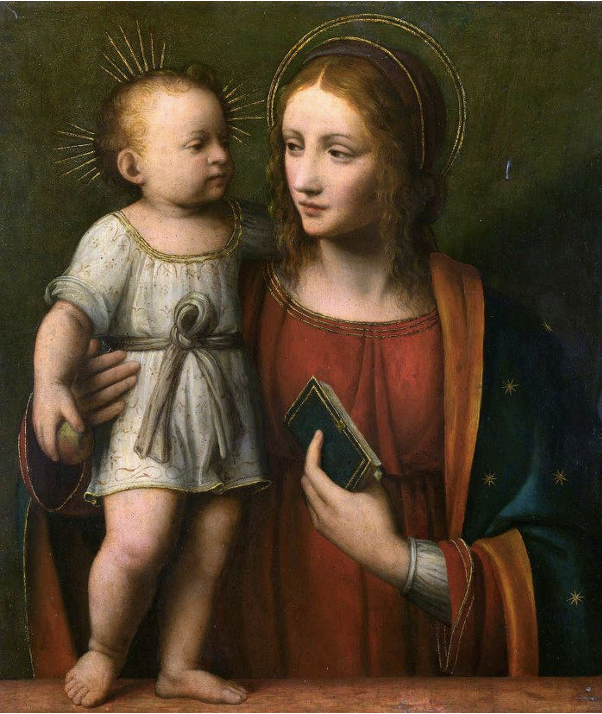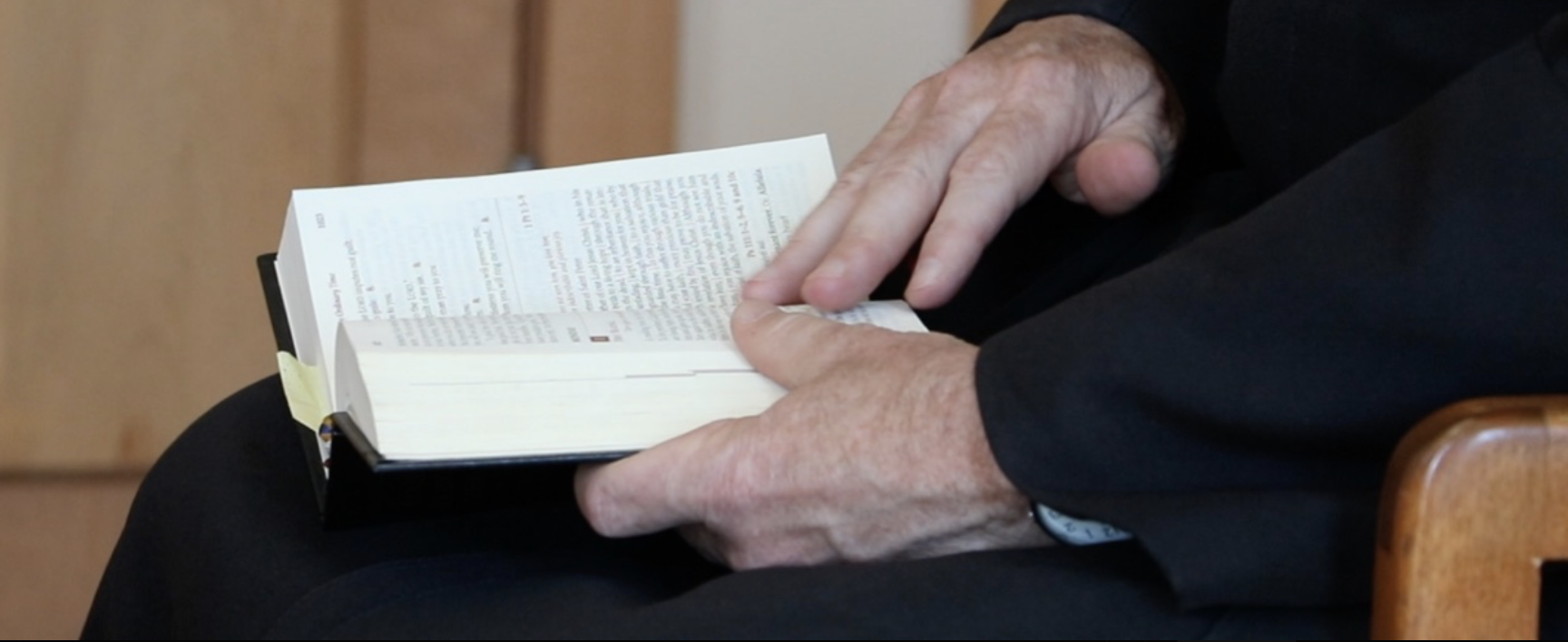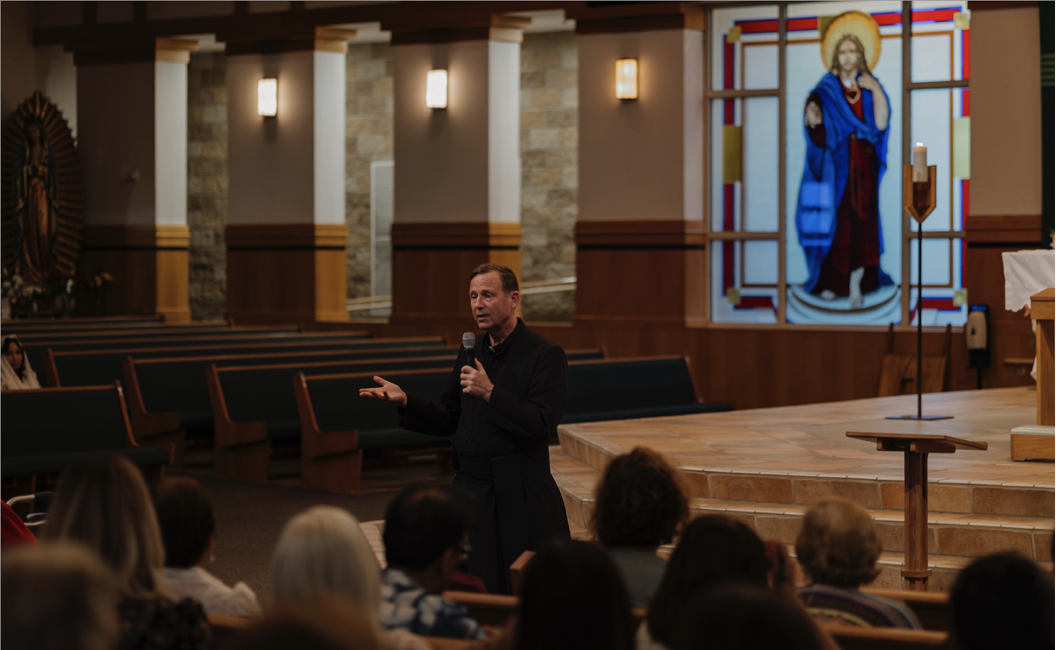
Of all of the actions that we can carry out on earth, on this side of eternity is to receive Our Lord and savior Jesus Christ in Holy Communion. Nothing can be greater now and for all time until the close of time and entrance into eternity.
Therefore, let us strive with ever fabric of our being to make a concerted effort to receive the Lord Jesus frequently, if possible, on a daily basis, but to receive Jesus with a better disposition ever Holy Communion. In a word, it should be our goal to receive Jesus with a better, more fervent, more loving, more passionate manner every time we approach the Eucharistic Banquet.
If accomplished our whole life will be an upward ascent in love for Jesus, the Bread of Life and the Son of the living God, and a love for the salvation of immortal souls until God calls us from this life to Judgment and eternal life in the Kingdom of God.
EXTREME NECESSITY OF HOLY COMMUNION.
With the utmost clarity, cogency and conviction Jesus taught the indispensable urgency and necessity of receiving Him if we want to attain life and eternal life. This we must read, meditate, understand, assimilate, live out and preach to the whole world in THE BREAD OF LIFE DISCOURSE—John 6. Time and time again Jesus insist on profound belief that He is truly the Bread of life. That we must not doubt but truly believe in this essential reality. Furthermore, we must nourish ourselves on Jesus the bread of life. In a short, succinct summary fashion, this is the essence of this most sublime and important discourse, Jesus says: “I am the Bread of life. Whoever eats my Body and drinks my blood will have everlasting life and I will raise Him up on the last day.” These words are expressed with the utmost clarity. Our eternal salvation depends on knowing Jesus, believing in Jesus, obeying Jesus. However, of paramount importance, we also must, and this is not optional but obligatory, consume, eat, receive Jesus the Bread of life into our souls in Holy Communion. This is so serious that it is a matter of eternal salvation of eternal loss.
The essential purpose and thrust of this article will be to help each and every one of us to prepare ourselves better to receive Jesus into our hearts in Holy Communion. Once again, this is worthy of repetition: the most important action that the human person can carry out on planet earth is to receive Jesus with the best of dispositions in Holy Communion. Our salvation and the salvation of many other souls depends in great part upon our fervent and loving reception of Holy Communion.
SORRY BUT TRUE STATISTICS.
Recently the Archbishop Perez of Philadelphia stated that he wanted to launch and initiative to seek out the many lost and wandering sheep of his Diocese. He sadly stated that only 18% of his flock—the Catholics of Philadelphia—were practicing Catholics. Among the Catholics of Germany only 3% presently practice their faith—that is to say, attend Mass on Sundays. I honestly believe that one of the principle reasons for this vast plummeting of Mass assistance and with it lack of reception of Holy Communion is a widespread ignorance of what Holy Communion really is. In a very real sense, we might even term this the modern “Catholic identity crisis”—many do not even understand or believe in the “Real Presence” of Jesus in Mass and in Holy Communion. Sad to say, many Catholics, due to a lack of adequate catechetical formation, have a vague and hazy understanding of Mass and Holy Communion. Many Catholics even have a Protestant interpretation of the Eucharist and Holy Communion; this so to say, they believe in a symbolic reality rather than belief in the Real Presence.
This being the case we would like to offer various suggestions on how we can foster and enhance our belief and fervor in our reception of Jesus, the Bread of Life in Holy Communion. Our salvation and the salvation of many others depends upon living out this fundamental Truth of our Catholic faith. May Our Lady, the angels and saints come to our assistance in this most noble and sublime of all our actions on earth!
1. BELIEF.
“Lord, I believe but strengthen my belief.” First and foremost, we must reaffirm our strong and unshakeable belief and faith in the REAL PRESENCE. In the Holy Sacrifice of the Mass at the moment of the consecration the bread and wine are radically transformed into the REAL PRESENCE. It is no longer bread and wine but truly and substantially the Body, Blood, Soul, and Divinity of Jesus, the Son of the living God. Theologians, thanks to St Thomas Aquinas, term this TRANSUBSTANTIATION—meaning that after consecration the appearances or accidents, look like bread and wine, but the essence and substance is truly Jesus in His Body, Blood Soul and Divinity. Many fail to come to Mass and receive Holy Communion because they are ignorant of this essential truth.
2. SUNDAY MASS OBLIGATION.
As the very center, heart, summit and pinnacle of every week let us all make a firm decision to attend the Holy Sacrifice of the Mass and never be absent, except for sickness or grave necessity. Our salvation depends on it! Moms and Dads please bring the whole family to the Lord Jesus.
3. ARRIVE EARLY.
In sports events, academic graduations, work obligations, we are more than punctual. Even more so should be the case in our participation in the Holy Sacrifice of the Mass. Let us not shortchange the Lord or give him the crumbs from the table; let us give the Lord the best of ourselves, especially in our religious obligations. Let us not be like Cain, giving begrudgingly to God his sacrifice. Rather, let us be like Abel, giving to the Lord our best. (Gen. 4)
4. FULL PARTICIPATION.
In sports there are the benchwarmers, the 2nd or 3rd string players who participate only to a limited degree. There are many Catholics in that same category. They may be present at Holy Mass physically, but they are in another world mentally and spiritually: distracted, using their phone, thinking about lunch, wandering eyes on the attractive women. And of course, many of these do not receive Holy Communion! The Second Vatican Council Document on the Liturgy Sacrosanctum Concilium states that in Mass all should participate fully, actively and consciously in this greatest and most sublime of prayers.
5. MODESTY IN DRESS.
We are created in the image and likeness of God; through Baptism we have been transformed into sons and daughters of God. Saint Paul reminds us that we are “ambassadors of Christ”—we represent the Lord of Lords and the King of Kings. Therefore, let us always recognize both our dignity and our eternal destiny. We want to reflect the beauty of God in our outward attire and recognize that our destiny is the eternal glory and beauty of our heavenly reward. Unfortunately, many dress immodestly and consequently many others are distracted and even tempted by uncomely apparel. May Jesus, Mary and St Joseph be our models.
6. PURIFICATION: CONFESSION AND HOLY COMMUNION.
For us to receive worthily Jesus in Holy Communion we must be in the state of grace. This means that we must be free from being aware of having a mortal sin in our soul. The two Sacraments of Confession and Holy Communion work together in support of each other. The more pure, clean and transparent the soul the more abundant the graces. Upon the reception of Holy Communion. This analogy can be helpful! The windows in our home can easily become dirtied, sullied, smeared, and obscured from the smog, dirt and uncleanness of the environment. WINDEX! How important is Windex—the well-known window spray and cleaner. Once we spray the dirty window, rub and dry it with a dry newspaper the window is transformed. The curtains swing wide open, and the abundance of sun penetrates, permeates, and inundates the whole room. In a parallel sense it is with respect to Confession related to Holy Communion. With the Sacrament of Confession, the Precious Blood of the Lamb of God who takes away the sins of the world cleanses our conscience, mind, heart, and soul so that Jesus the Sun of God can enter into the very depths and core of our being and transform us with His brilliant light, peace, joy and abundant love. Therefore, confess often so as to enhance the efficacy of your Holy Communions!
7. HUNGER AND THIRST FOR HOLY COMMUNION.
The angelic Doctor, Saint Thomas Aquinas, stated that one of the most important conditions for receiving Holy Communion is that we have an ardent hunger and thirst for Jesus in Holy Communion. If you like, this verse from one of the Psalms illustrates the point of hunger that we should have for Jesus, the Bread of Life. “As the deer yearns for the running streams, so my soul thirsts for you, my God.” A person dying of hunger and thirst longs to be satiated by food and drink, so it should be for our soul longing for the Face of the living God in Holy Communion.
8. REVERENCE.
When we have arrived at the sublime moment of receiving Jesus in Holy Communion we should approach Him with the utmost modesty, dignity, reverence, love, devotion and confidence—both in our exterior comportment as well as our disposition of soul. Our hands should be folded, eyes fixed on Jesus, a reverential bow, and an AMEN before receiving the Lord of Lords, the Kings of Kings, the Creator of the entire universe into the very depths of your soul. No greater, sublime, exalted actions exists in the life of the human person than receiving Jesus, the Bread of Life, in Holy Communion.
9. BEG MARY FOR HER IMMACULATE HEART.
One of the secrets of the sanctity of Saint Mother Teresa of Calcutta was her manner of receiving Holy Communion. This great modern saint would beg Mary to give her Immaculate Heart so that she could receive worthily Jesus in Holy Communion. Never was there a person that ever-received Jesus with greater, devotion, attention, fervor, and love than His Mother, Mary most holy. She can definitely come to our aid and assistance to improve our reception of Holy Communion.
10. THANKSGVING.
Upon receiving Jesus in Holy Communion immediately we should open our hearts, minds and souls with the greatest love possible and render to Him THANKSGVING. (In a previous article is written in great detail ways to thank the Eucharistic Lord Jesus). Therefore, we should do all that is possible to prepare to receive Jesus in the Eucharist, but of equal importance we should learn the art of THANKSGIVING upon receiving Jesus our Best of Friends. Praise Him, thank Him, worship Him, implore Him, pour your hearts out to Him, beg pardon and reparation, and cast all your cares upon Him, and much more…
Finally, in imitation of the Blessed Virgin Mary who received Jesus into her Immaculate Heart at the Annunciation and went in haste to bring Jesus to others, let us bring Jesus to others and bring others to Jesus. Dear friends in Jesus and Mary, let us strive on a daily basis to receive Jesus, the Bread of Life with greater love, fervor and devotion. Our salvation and countless souls depends on this most sublime truth and practice. Our Lady of the Eucharist, pray for us!



